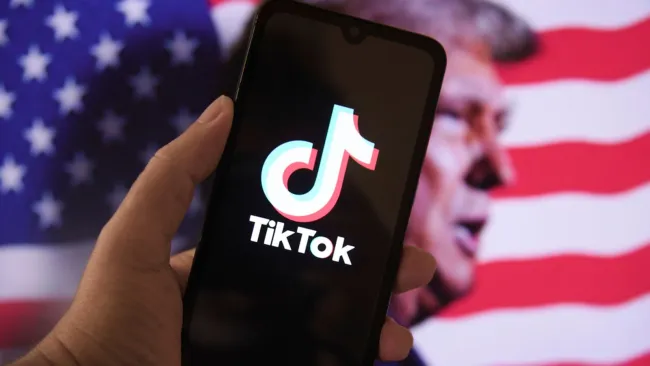Trump Steps In: Why TikTok Was Banned and How He’s Bringing It Back in 2025
The impending TikTok ban in the U.S., slated for January 19, 2025, seems less about national security and more about political theatrics. As the app faced shutdown, President-elect Donald Trump swooped in, positioning himself as the hero pledging to “save TikTok.” But let’s be clear—this isn’t solely about safeguarding Americans. It’s about control, power, and a blatant bid to win over TikTok’s massive user base of 170 million. Here’s the explosive truth behind the ban and Trump’s grandstanding.
1. The Ban: Political Theater Disguised as National Security
The Protecting Americans from Foreign Adversary Controlled Applications Act, signed by President Biden in April 2024, mandated TikTok’s Chinese parent company, ByteDance, to either sell the app or face prohibition. The deadline? January 19, 2025—just one day before Trump’s inauguration. Coincidence? Not likely.
Lawmakers justified the move citing “national security risks,” alleging TikTok could potentially expose American data to China. Yet, let's not ignore that other tech giants like Facebook, Google, and Instagram have long been collecting user data. This ban boils down to one thing: silencing a platform beyond political control.
2. TikTok’s Shutdown: Defiance Against Washington
On January 19, 2025, TikTok voluntarily suspended service, displaying a message stating, “Sorry, TikTok isn’t available right now. A law banning TikTok has been enacted in the U.S.” Within 12 hours, however, it made a defiant return, thanks in part to Trump. A celebratory pop-up declared, “Thanks to President Trump’s efforts, TikTok is back in the U.S.”
This wasn’t merely a shutdown; it was a strategic maneuver. TikTok boldly asserted its authority over Washington, asserting that power truly lies with the people. And Trump? He’s leveraging it to the fullest extent.
3. Trump’s Reversal: From Ban Advocate to “Savior”
Remember Trump’s attempt to ban TikTok in 2020? Now, he’s its most vocal supporter. Why the change? TikTok’s enormous user base of 170 million represents a treasure trove of potential votes. Trump’s sudden advocacy for TikTok reeks of political opportunism.
He now proposes a 90-day extension to negotiate a 50-50 joint venture between ByteDance and a U.S. entity. But let's not delude ourselves—this isn’t primarily about protecting Americans. It’s about Trump positioning himself as the rescuer of a platform he once sought to dismantle.
4. Supreme Court’s Inconsistency
The U.S. Supreme Court upheld the ban, asserting it doesn’t violate the First Amendment. Seriously? Prohibiting a platform used by millions to express themselves isn’t a free speech issue? The Court’s decision dismisses the concerns of countless Americans who use TikTok for connection, creativity, and sharing.
This isn’t about national security—it’s about control. The Supreme Court has essentially granted the government a license to silence platforms it deems inconvenient.
5. Real Victims: Creators and Small Businesses
Amidst political maneuvering, 7 million small businesses and 170 million users find themselves caught in the crossfire. TikTok isn’t merely an app—it’s a lifeline for creators, entrepreneurs, and influencers who’ve built careers on the platform.
The brief shutdown caused panic; its return brought relief, yet the platform’s future remains precarious. For these individuals, political drama is irrelevant—they simply want to safeguard their livelihoods.
6. ByteDance’s Stand: The Algorithm’s Value
ByteDance refuses to sell TikTok, and China won’t relinquish control over its algorithm—the secret sauce fueling TikTok’s addictive appeal. Prospective buyers like Frank McCourt and Kevin O’Leary circle, but without the algorithm, TikTok is just another video-sharing app.
This isn’t merely a business dispute; it’s a geopolitical standoff. Meanwhile, American users bear the brunt of this standoff.
7. Political Theater: Biden vs. Trump
The TikTok ban has devolved into a political saga. Biden’s camp dismisses the shutdown as a “stunt,” while Trump capitalizes on his perceived role as savior. Meanwhile, hardline Republicans like Tom Cotton call for an outright ban, disregarding TikTok’s cultural and economic significance.
This isn’t about protecting Americans—it’s about scoring political points in an endless partisan battle.
8. Silicon Valley’s Double Standards
Elon Musk criticized the ban as “unbalanced,” citing how platforms like X (formerly Twitter) are banned in China. Yet, when TikTok faced its existential crisis, Musk remained conspicuously silent, preoccupied with other endeavors—including flirtations with purchasing TikTok himself.
While tech giants champion “free speech,” their stance on TikTok remains ambivalent.
9. What Lies Ahead? Continued Chaos
Trump’s proposed 90-day extension may temporarily quell uncertainty, but TikTok’s fate remains uncertain. ByteDance refuses to yield, China stands firm, and U.S. lawmakers remain mired in discord.
Coincidentally, TikTok’s CEO, Shou Zi Chew, is slated to attend Trump’s inauguration—an event fraught with symbolism.
10. The Big Picture: Control at Stake
Let’s call it as it is: the TikTok ban isn’t primarily about protecting Americans—it’s about control. Control over data, speech, and narrative. Politicians fear a platform beyond their grasp, especially one with immense sway over young voters.
The real question remains: who’s truly monitoring you? China, or your own government?
The TikTok ban saga is far from over. Brace yourself—this political spectacle is just beginning.
